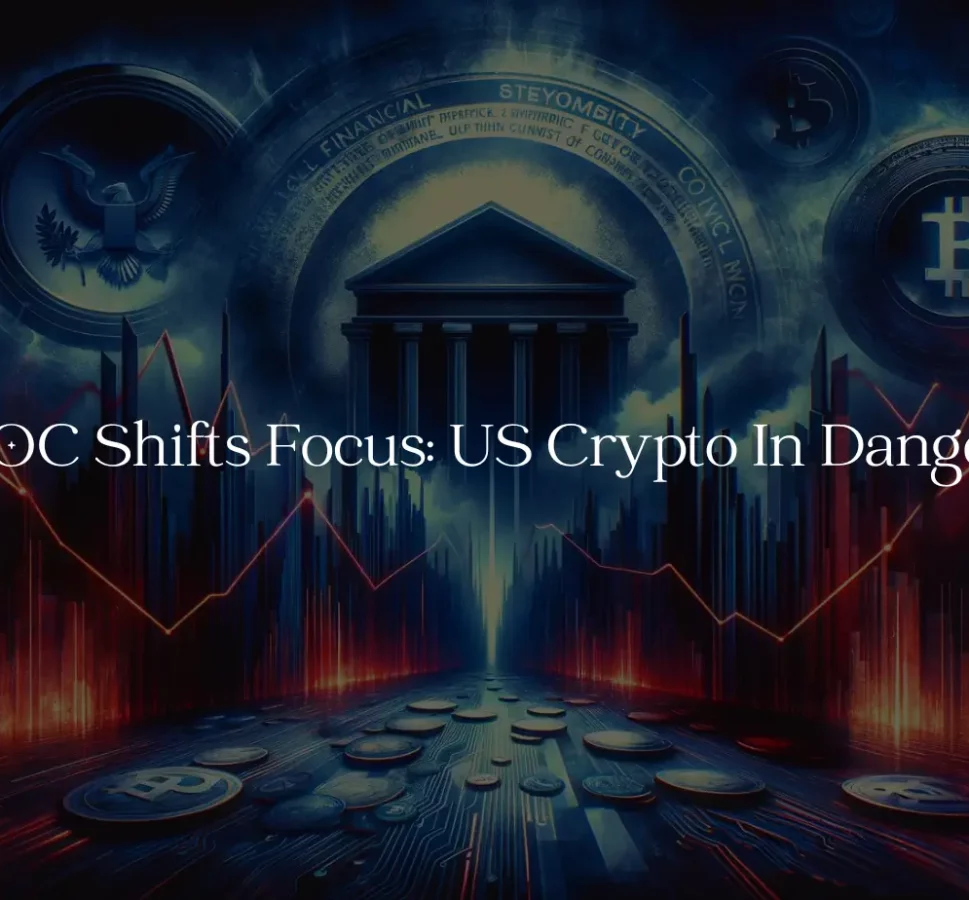- The FSOC has the authority to designate companies as systemic risks, heavily impacting the cryptocurrency industry.
- Recently, FSOC’s attention has turned towards stablecoins, citing concerns about their threat to financial stability.
- Congressional efforts are underway to develop a regulatory framework specifically for digital assets and stablecoins.
Following the 2008 worldwide financial crisis, the U.S. Congress established a regulatory panel with the unique capability to identify and mitigate emerging financial threats. This panel, known as the Financial Stability Oversight Council (FSOC), possesses the authority to label certain companies as systemic risks, imposing significant regulatory burdens on them. Recently, the cryptocurrency industry has come under the scrutiny of this council.
In November, the FSOC, comprising leaders from major U.S. financial regulatory bodies including the Treasury Department, Federal Reserve, and Securities and Exchange Commission, reversed several changes made during the Trump administration. These changes had previously weakened the council’s ability to designate firms as potential threats. Now, the FSOC’s power is fully restored, although it has been largely inactive for some time.
The council could potentially identify major players in the digital asset market, such as prominent stablecoin issuers, as systemic risks. This designation would subject these firms to Federal Reserve oversight and various regulatory requirements, similar to what occurred with American International Group Inc. during the 2008 mortgage crisis.
While there are no immediate indications of such action, the FSOC has expressed concerns about the risks posed by stablecoins to financial stability. This issue was brought into the public domain during a recent subcommittee hearing of the House Financial Services Committee. Here, legislators inquired about the council’s intentions regarding cryptocurrency regulation.
Representative French Hill (R-Ark.), chairman of the digital-assets subcommittee, emphasized the importance of congressional efforts in creating a regulatory framework for digital assets and stablecoins. He asserted that FSOC’s involvement was unnecessary and that the council should instead support these legislative initiatives.
The FSOC’s recent annual report again highlighted cryptocurrencies, particularly stablecoins, as potential emerging risks to U.S. financial stability. Although the council’s call for crypto legislation appears to align with congressional objectives, it also served as a warning: the council is prepared to act if comprehensive legislation is not passed.
Despite these warnings, experts testifying at the congressional hearing, including Ji Kim from the Crypto Council for Innovation, deemed it unlikely that the FSOC would use its designation power, given the high threshold for such action. Similarly, Bill Hulse of the U.S. Chamber of Commerce argued that the crypto sector’s failures in 2022, including the collapse of FTX, did not significantly impact the broader financial system.
The FSOC has been criticized for its slow decision-making process and its focus on annual reports rather than proactive measures. This was evident when it failed to prevent crises involving banks like Silvergate Bank and Signature Bank, which were heavily involved in the crypto industry.
To subject a crypto firm to Federal Reserve oversight, the FSOC would need to undertake a comprehensive process, something it has not done outside the context of the 2008 financial crisis. Designating a crypto firm as a risk might also prompt questions about why large U.S. asset managers have not received similar scrutiny.
Republican legislators have indicated that they will challenge any move by the FSOC to extend its oversight into the crypto sector, emphasizing the importance of legislative efforts in regulating digital assets.






